This story has MAJOR SPOILERS for Widows.
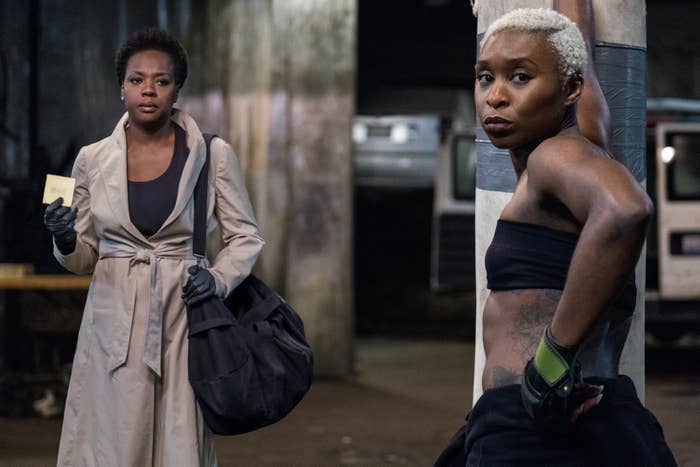
There are many pleasures packed into Widows — the action! The acting! That incredible shot outside Colin Farrell’s car! But first and foremost, the film’s greatest strength is how it upends our expectations of what to expect in a heist movie.
As the title suggests, the film follows three women — Veronica (Viola Davis), Linda (Michelle Rodriguez), and Alice (Elizabeth Debicki) — whose husbands are all killed in a robbery gone wrong, led by Veronica’s husband, Harry (Liam Neeson). When the man they stole from, local Chicago crime lord Jamal Manning (Brian Tyree Henry), demands his money back, the women are forced to band together to use Harry’s plan for his next robbery. Warning: The MAJOR SPOILERS start here.
Widows’ first twist arrives when we learn who Harry was going to target: Jack Mulligan (Colin Farrell), a local politician and part of a Chicago political dynasty, and the same person who’d hired Harry for the deadly robbery of Jamal — because Jamal had decided to run against Jack for city alderman in their district. It turns out Jack has a vault stacked with all kinds of bribes and illegal goods, and Harry was keen to grab it.
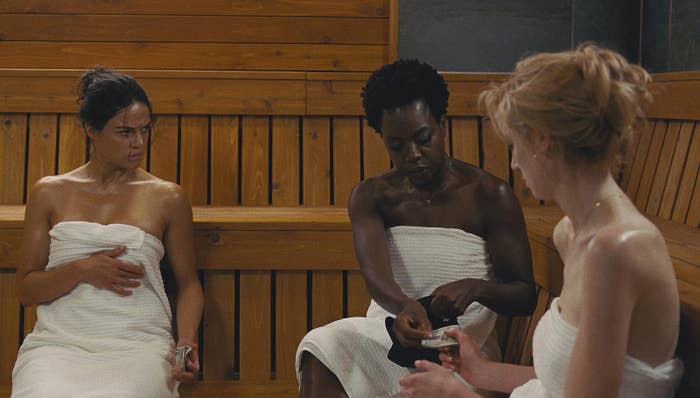
The film’s biggest twist — making clear this isn’t going to unfold like a standard heist movie — comes a bit later. The women are joined by Belle (Cynthia Erivo), Linda’s hyper-competent babysitter, after the fourth widowed woman, new mother Amanda (Carrie Coon), begs off joining the new heist. But Veronica still hopes Amanda might have some helpful intel, so she pays an unannounced visit to Amanda at her apartment. Veronica brings her small dog, and when Amanda has to step away to tend to her baby, the dog starts barking at a closed door. Confused, Veronica investigates — and notices Harry’s flask nearby. In a panic, she grabs her dog and bolts. When Amanda emerges holding her baby, she opens the door, revealing Harry, still very much alive.
The gasp-worthy twist seems right up the alley of Gone Girl author Gillian Flynn, who co-wrote the screenplay with director Steve McQueen. But as she pointed out to BuzzFeed News, the moment comes directly from the original Widows TV series, which aired in the UK in the early 1980s from creator (and female-driven crime thriller pioneer) Lynda La Plante.
“People are like, ‘Oh, you are known for your twists!’” said Flynn. “I’m like, ‘That’s all — bow down to Lynda La Plante.’” The show was an obsession of McQueen’s while growing up — he’s the one who reached out to Flynn to collaborate on the project — and when they were discussing what they wanted to keep from the show, “It was like, ‘Obviously that stays,’” Flynn said of the Harry twist. “It was just a given.”
From that moment on, Widows unfolds with a series of cunning plot turns crafted by Flynn and McQueen to maximize that tension in their story, leading to the breathtaking climactic robbery and a final confrontation between Veronica and Harry. Flynn walked BuzzFeed News through how the ending came together — and whether she sees the story continuing.
Veronica planned on a final confrontation with Harry — and she was always going to kill him.
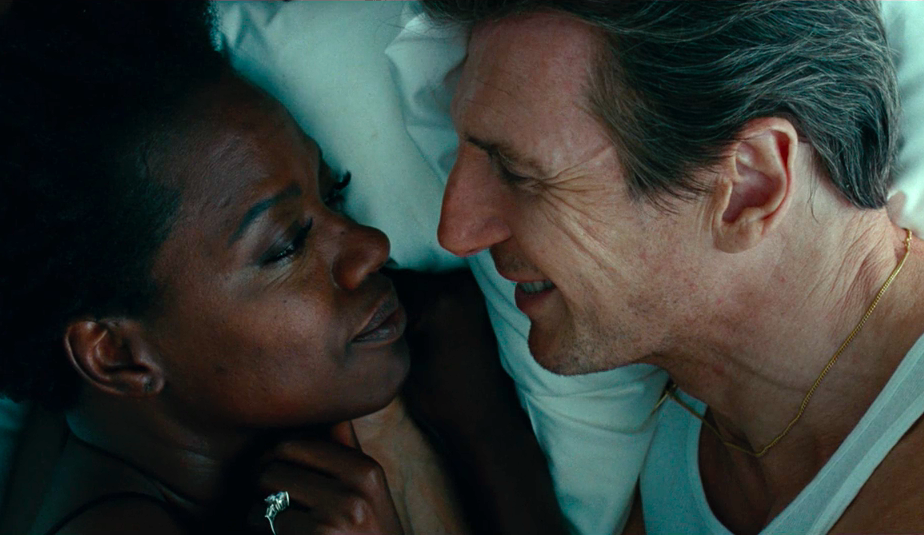
After leaving Amanda’s apartment, Veronica never tells anyone that Harry may still be alive, indicating that a big part of her wants to believe he would never betray her that way. But Flynn said that Veronica knows she and Harry will eventually meet again.
“It’s a love story,” she said. “If love is truly knowing your partner, that agreement has to go all the way through. You have to truly agree to know your partner, warts and all.” But as we see, Veronica had been content to enjoy the life Harry provided her without really interrogating how he provided it — and what his line of work suggests about what else he’s capable of doing. We see that their marriage began to disintegrate after their grown son was killed in a police shooting — an effort, Flynn said, to “really capture that feeling of what was going on, what is going on, in Chicago.” But as Veronica begins to use Harry’s notebook detailing every job he ever pulled — and setting out every step of the job Veronica and the other widows are going to pull — she exposes herself for the first time to his world’s ruthlessness and lethal menace. And she realizes that their marriage was far more precarious than she’d let herself believe.
After the heist is over, Veronica takes the money to Harry’s old warehouse headquarters, where Harry is waiting to demand Veronica give him the full take. “So in a way, him showing up was the two of them truly meeting for the first time — in an ugly way, but in a true way at least, finally,” said Flynn. “I don't believe she knew how it was going to turn out, but I do think that she knew that was going to happen.”
That confrontation does indeed get real ugly: Harry knocks Veronica to the ground, and just as it looks like he’s going to shoot her, she shoots him instead.
Flynn said that she and McQueen debated just how dark the confrontation would get, but they knew Harry was going to die by her hand. “It was not going to be that they were going to ride off into the sunset together,” she said. “That was never an option.”
All four women, meanwhile, were always going to survive — it was just a matter of figuring out at what cost.
In a movie this cutthroat — and this honest about how hard it would be for four women with zero experience to pull off a heist this dangerous and elaborate — it’s a welcome surprise that all four women survive the robbery. But that was always the filmmakers’ intention.
“We knew they were going to make it through,” said Flynn. “We wanted them to make it through in an ugly way.”
They debated going so far as to have pretty much everything go wrong with the heist before settling on a not-so-happy medium: After successfully robbing the vault inside Jack Mulligan’s home, the women are confronted at gunpoint by Jack’s father, Tom (Robert Duvall). There’s a tense standoff until Alice is shot trying to grab Tom’s gun, causing Linda to shoot and kill Tom. Veronica and Belle drop Alice off at an ER with Linda at her side, and all four women go their separate ways — richer, but scarred by the experience.
“We talked about the idea of, you can’t do this crime without losing a bit of yourself along the way,” Flynn said. “We knew we wanted to show that cost.”
The final scene in the diner took forever to get right.
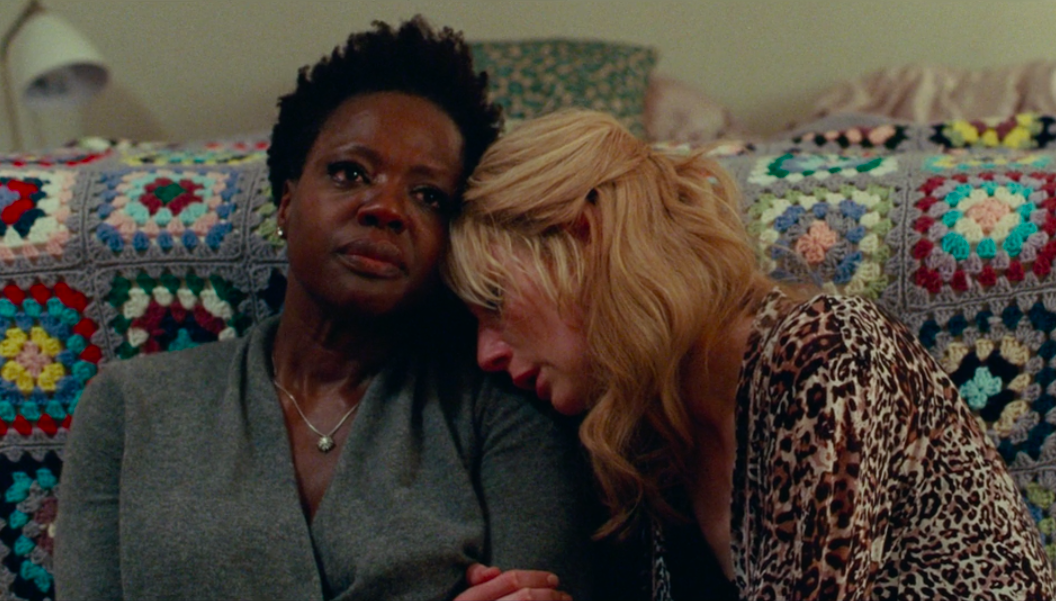
It was far harder, Flynn said, to settle on the film’s final scene. Initially, they discussed having all four women meet at a coffee house one last time, a common trope for heist movies. “You maybe don't hear them talk, but you see them all gathered together,” Flynn said. Those versions, however, felt “more pat,” Flynn added, and not in keeping with a film that repeatedly defies audience expectations.
“We kept coming back to the Veronica-Alice relationship, this woman who had lost her child and this woman who was basically still a child, who had had this horrible mom,” Flynn said. “Veronica and Alice were those two ragged ends of the story, the characters that you worried about.” So McQueen and Flynn chose to end with the two women accidentally coming upon each other in a diner, and Veronica running after Alice out of diner, smiling for pretty much the first time in the film, and asking Alice, “How ya been?”
“It’s more jagged and off the cuff, and just the correct ending,” Flynn said. “It feels like it might not have happened. You can feel Veronica sitting with her coffee and debating whether she was going to go after her. It felt so wonderful and spontaneous and real.”
That’s in part because, according to Flynn, it was spontaneous. Asked about writing the final line, Flynn laughed. “Oh my god, we tried so many different bits of dialogue,” she said. “At the end it just ended up being that moment with Viola bursting into that smile. I think she just improv'd that [line].”
“That was a huge step for Veronica, to actually ask someone how they’re doing,” Flynn added. “I loved that.”
Flynn would love to revisit these characters.
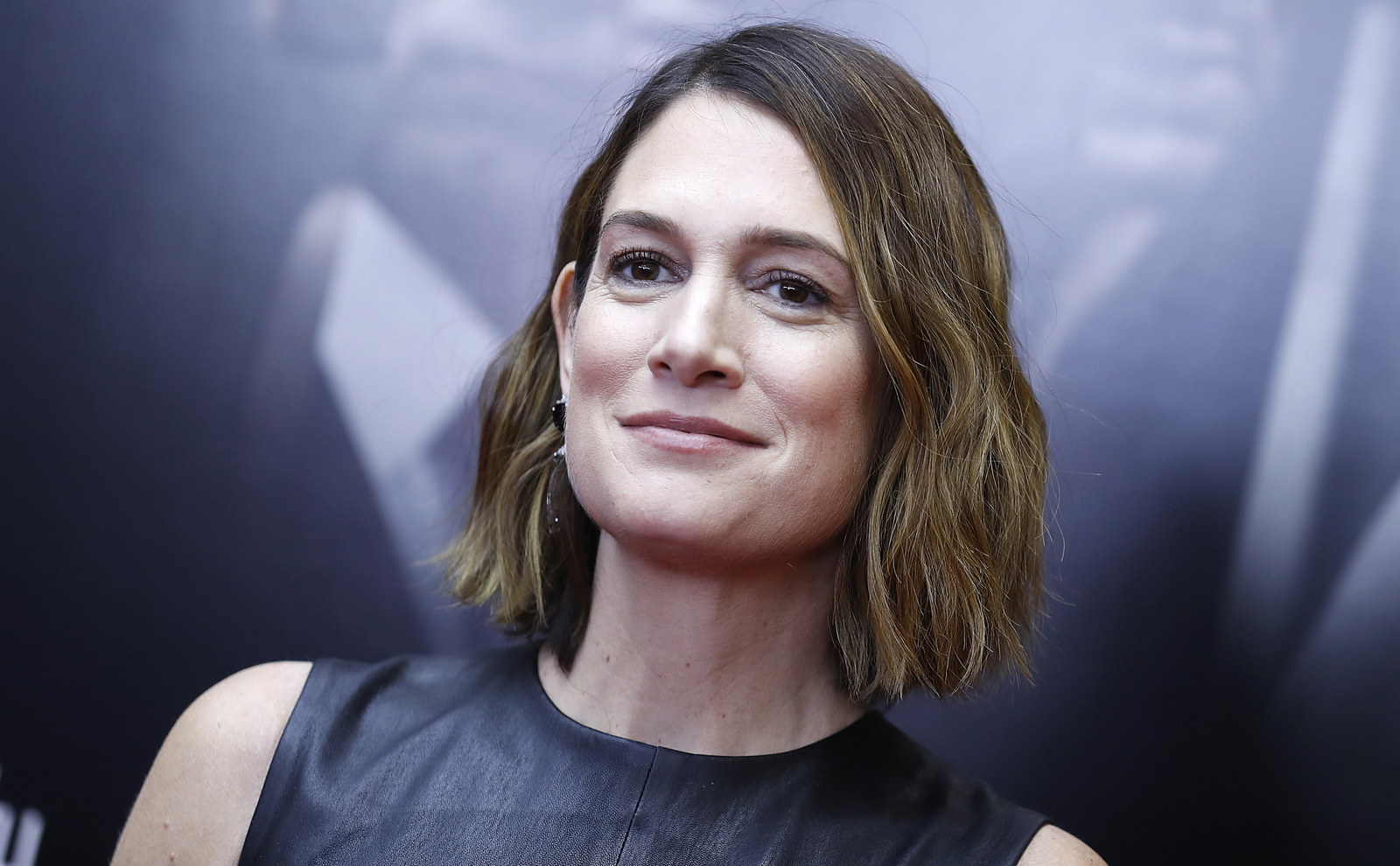
One of the film’s many subplots — the contentious campaign between Jack Mulligan and Jamal Manning — resolves with delicious irony: Jack, who hated politics almost as much as he despised his virulently racist father for forcing him into it, ends up beating Jamal thanks to sympathy over his father’s death.
“I’d love to do my own little sequel and see what happens when the investigation goes a little farther and they discover that secret vault filled with all the ill-gotten gains — see how sympathetic everyone is,” Flynn said with a not-un-sinister laugh.
Widows is bursting with so many vivid characters and draws so thoughtfully from the vast landscape of stories in the city of Chicago, where Flynn lives, that it’s almost a no-brainer that she’d want to return to this story.
“Oh god yeah,” she said. Flynn said McQueen visited often during the writing process to research the city with her. “We really did spend so much time talking to so many people who represent so many aspects of the city,” she said. “At one point, we looked at each other and were like, Why didn’t we do this as a miniseries? There’s so much here.”
“It’s totally just my daydreaming,” she added. “[But] I’d love to dip in two years from now and see what they're up to.”
